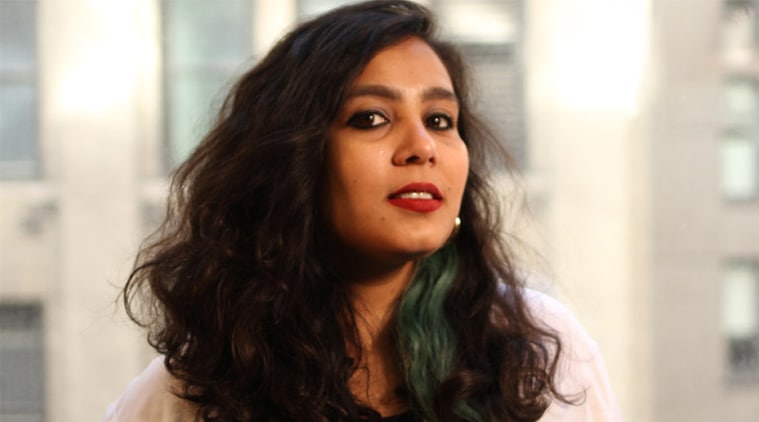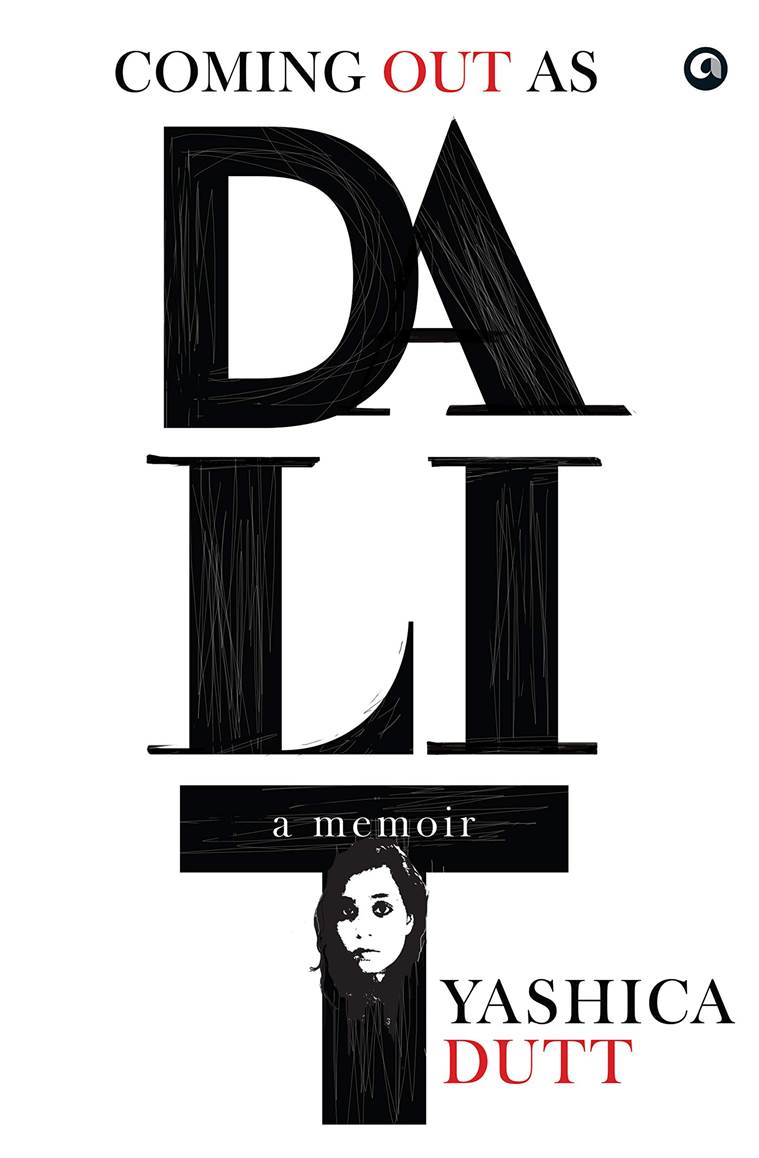 Jaipur Literature Festival: Yashica Dutt wrote a memoir, Coming Out As Dalit penning down her experiences, her constant pretension of being from an upper caste and wilful denial.
Jaipur Literature Festival: Yashica Dutt wrote a memoir, Coming Out As Dalit penning down her experiences, her constant pretension of being from an upper caste and wilful denial.
Sitting with her friend on a pleasant winter evening at Delhi’s Connaught Place, Yashica Dutt knew she had to confide. “I had to tell my friend who I was. Otherwise, it felt like I was deceiving her.” She revealed she is from a lower caste -“an SC”. The disclosure and the secrecy associated with it made her feel like she was admitting to murdering someone. “So?” was the incredulous response. ” Her friend’s wholesome acceptance empowered her.
That was in 2015. On 20 January 2016, three days after young scholar Rohith Vemula’s suicide, Dutt wrote a note on Facebook, titled “Today, I’m coming out as Dalit”. Her note was dressed as a confession — detailing her initial shame and the constant fear of being found out — but her assertion made it a declaration.

It concluded with her owning her identity, with all the physical and mental hardships it entails, and urging others to do the same, “Let us hear stories of pride, of history and ownership against the emotional, personal, physical and mental toll of the caste system. Let it be known that Rohith’s birth was no ‘fatal accident’”
As a step towards that, Dutt wrote a memoir, Coming Out As Dalit penning down her experiences, her constant pretension of being from an upper caste and wilful denial, Vemula’s suicide and her growing awareness that if circumstances were slightly different (her father was a civil servant with the State government and her mother, determined to give her an upper-caste upbringing, took pains to make her daughter not look like any other dark-skinned Dalit or be called a bhangi) it could have been her: Her social mobility could impede systemic oppression but not preclude it.
A journalist, Dutt is based out of New York and has been extensively writing on culture, identity and gender. She was at the Jaipur Literature Festival recently where she spoke to indianexpress.com about “coming out”, of seeking for a language to describe her experience, her privilege and the absence of Dalit literature in India.
Excerpts.
We generally associate the act of “coming out” with the LGBTQ community and assertion of their sexuality. You have used it to reclaim your identity. How are they similar?
Coming out was such a huge moment for me. I felt like I had unburdened all the shame, guilt and the disgust that I was carrying for so long with who I was. All it took was one swift gesture. That moment (writing the note) was so huge. I knew it would, in a big way, define me and the rest of my life. The only way I could think of framing it was by “coming out”. I understand that it is used by the LGBTQ community. They do it because they had to pass off as someone they are not. They were forced to associate with a gender they do not associate with. But I did not appropriate it. The intent of the usage was similar: to emphasise on the gap between who you are and who you pretend to be and the fear of being ‘outed’ by others.
When I decided to talk about it, those are the words that kept ringing in my head. The wording was conscious as I wanted to create a terminology for the experience not just for me but for anybody else who wants to use it. It felt like literally putting down a heavy bag, a dead body that I was carrying and deciding never to carry the burden again. I wanted to mark the moment and I thought ‘coming out’ was an appropriate way to describe it.
You ‘came out’ when you were in New York. Was that a conscious decision?
When I ‘came out’, I was already residing in New York for one and a half years. By then I had the experience of studying at Columbia, getting an education I had not received earlier. The place exposed me to the ways system of discrimination work and how society is created to benefit from it. On being confronted with those ideas, I had started grappling with my identity and thinking that maybe hiding my identity is not normal. That perhaps it is more than I think it is. And then, of course being exposed to people from different races, non-binary people and seeing them assert themselves with such faith was refreshing and freeing. It was an awakening for me and frankly, my glass was already full. After reading his suicide note I just ripped off the band-aid.
 “I am but an individual but I do try as much as I can to amplify the stories that need amplification.” (Source: Amazon.in)
“I am but an individual but I do try as much as I can to amplify the stories that need amplification.” (Source: Amazon.in)
Do you think a large part of you coming out on your own will is reliant on your privilege?
Completely. The fact that I could even hide myself was a privileged decision. If I was not living in an urban location or my parents were not educated, if I was still a girl who was living in a rural setting identified by caste, I would have no option to hide it. This is a pure urban setting situation where you have moved away from your roots so you cannot be directly identified with it. Rohith could not hide his caste.
There are so many Dalit stories, from different settings, some being able to pass off as people from other caste, some unable to. In some cases, the first generation is going to study while in others all four generations are educated. Our stories are so richly varied. All I have tried to do is identify a terminology, paint a picture of how caste exist. I am not trying to represent a struggle of 250 million people because it is foolish and impossible. I am a journalist and all I have attempted is to tell a story in a truthful and honest way.
Being aware of the varied narratives, do you feel a sense of responsibility to make them heard?
Yes, that is why I wrote the book. After I wrote that Facebook note, I started writing a lot of explainers on caste. I was writing on how do we talk about caste after the new awakening in Dalit resistance had happened post Rohith’s death, how do we get that language? I was obviously borrowing from black resistance movement, various indigenous movement in the US and tried to conflate it. I am but an individual. I can only try as much as I can to amplify the stories that need amplification.
What is your opinion on Dalit literature?
There has been a wealth of Dalit literature but it does not get much attention. Manoranjan Byapari is a Dalit writer so is Sujatha Gidla. But in terms of stories that exist, there still is a huge gap that needs to be filled. There are as many Dalit stories as there are Dalits. We have very limited Dalit fiction.
Growing up, did you feel an absence of Dalit characters in fiction?
Most Read 1India versus New Zealand: Mohammed Shami has mastered the art of bowling out batsmen, like Wasim Akram and Waqar Younis did 2Vishal Bhardwaj thought Kaminey won’t work because nobody was getting along on set: ‘There was so much conflict…’ 3Ganapath box office collection day 2: Tiger Shroff-Kriti Sanon’s dead-on-arrival film fails to crack Rs 5 crore mark after two days 4India vs New Zealand Highlights, World Cup 2023: Virat Kohli’s brilliance takes IND to a four-wicket win 5Leo box office collection Day 4 early reports: Vijay’s film makes the best of first weekend
It is a difficult question for me to answer since while growing up I actively stayed away from anything that mentioned caste. I did not read Ambekar till I was 30. And yes, there was a lot of personal shame associated with it. Look at what people from our caste are associated with- manual scavenger. My mother would constantly say, “ghar saaf karni hain” otherwise people would say call us bhangi. We were trying to create an illusion of equal opportunity for ourselves.
From denial about your caste, have you come to accept it now?
Also ReadJCB Prize for Literature 2023 shortlist features three translations, four…Five poets to read from Palestine and IsraelFive books to read on the Israel-Palestine conflictBook Lovers Day: Top 10 best-selling books of all time
Oh, there is total pride in who I am. Acceptance had happened with confrontation. When I read Rohith’s note, so many of us could relate to it. I face a lot of trolling on social media for being proud of my identity. It is like how dare she be proud of being a Dalit woman? People call me gross. I don’t fit the marginal community, I don’t look like a Dalit (at least the perception they have of Dalits in their minds) so I don’t deserve their sympathy. I know it sounds baffling but it doesn’t matter. I have earned that tag. If my pride offends you, take a hike.


